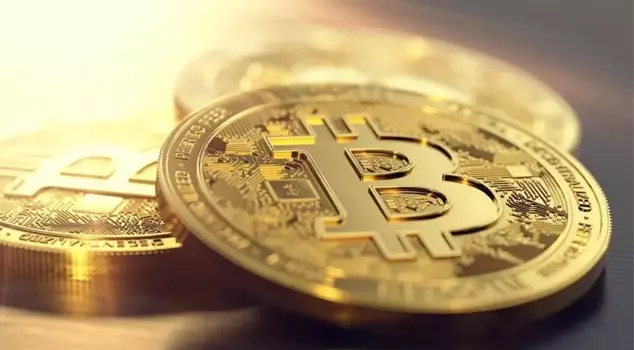
28.04.2025 17:55
Bitcoin is positively differentiating itself from traditional risk assets in the context of Trump's tariff policies. According to a report by NYDIG, the cryptocurrency serves as a store of value during "U.S. risk-off" periods. Since April, Bitcoin has gained more than 13% in value, positioning itself alongside safe havens like gold and the Swiss franc.
A potential shift is occurring in the relationship between Bitcoin and traditional assets. According to Greg Cipolaro, the global research head of NYDIG, Bitcoin exhibited "noticeably different" behavior during the trading week that ended on April 25. Cipolaro emphasizes that the cryptocurrency is now acting "less like a liquid leveraged version of a U.S. stock bet and more like a store of value issued by a non-sovereign entity, as is."
Bitcoin Challenges Market Turbulence with Its Store of Value Feature
During a period when U.S. markets have shown declines in recent weeks, Bitcoin (BTC) has managed to differentiate itself. Greg Cipolaro noted this situation, stating, "The decoupling from traditional risk assets is still very early and fragile, but for those monitoring the crypto markets 24/7, the change is palpable."
Trump's tariff announcements on April 2, dubbed "Day of Liberation," escalated global trade tensions. These announcements indicated that various tariffs would be applied at a minimum rate of 10% to each country. In this environment of economic uncertainty, while the S&P 500 and technology-heavy Nasdaq indices lost value, the U.S. dollar and long-term U.S. Treasury bonds also underperformed.
During this period, traditional safe havens like gold and the Swiss franc gained value, and Bitcoin also became a candidate for this category. According to the NYDIG report, increasing volatility in stocks, currency rates, interest rates, and bonds has directed investors toward seeking safe havens.
Cipolaro stated that investors are looking for alternatives to U.S. hegemony. Options are limited for investors seeking alternatives outside traditional financial systems. Gold remains the largest non-sovereign store of value with a market capitalization of approximately $22 trillion, while Bitcoin holds a value of $1.8 trillion, a small fraction of that.
Bitcoin stands out as the only asset among listed top crypto assets that "focuses solely on monetary or store of value use cases." Other crypto assets can be more accurately described as fuel for decentralized application platforms. Cipolaro concluded by noting that despite Bitcoin's recent gains, "there are very few signs that the market is overheating," and he believes that the recovery is still in its early stages.